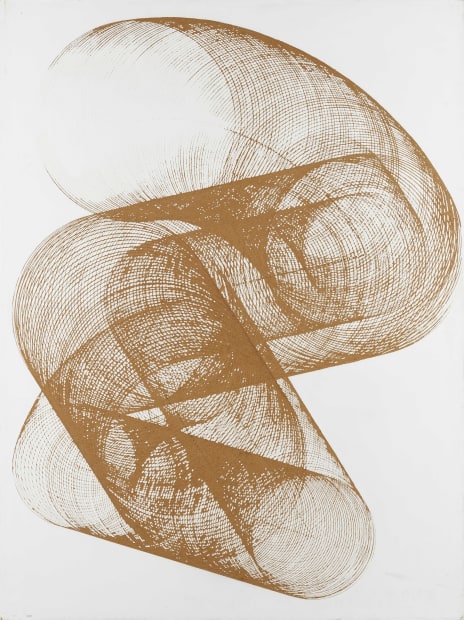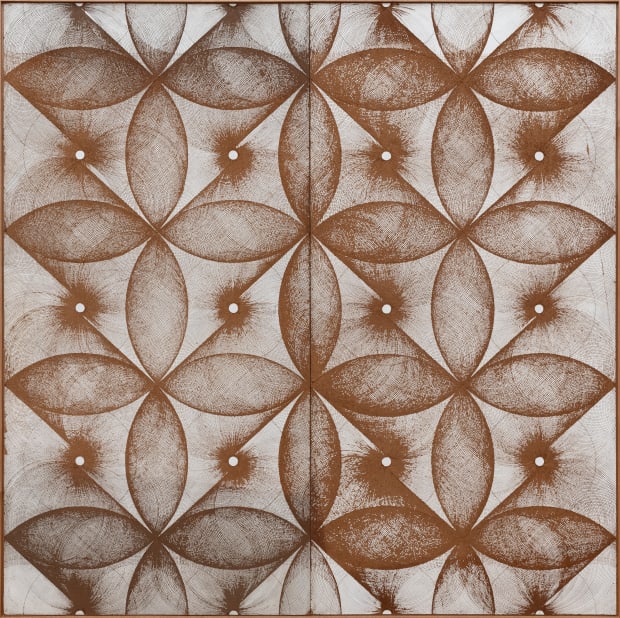Kanda & Oliveira is pleased to announce the exhibition "Sound and Vision" by Yutaka Hatta, which will be held from March 16 to April 20.
This exhibition will feature approximately 20 works, including carving works, but also paintings based on auditory and tactile sensations, and works using kozo material in connection with the renowned Echizen’s industry.
Born in Fukui Prefecture in 1930, Hatta graduated from Kanazawa College of Art after the war, and continued to create while working as a teacher until his 50s. From Fukui, far from what could be defined as the center of the art scene in Japan at the time, he remained committed to local cultural and art movements such as "Hokubi", and then Tannan Art Festival, while managing his own production in a continuous circular stimulation of creativity.
Searching for a unique form of expression that was not a subgenre of European art, Hatta underwent a self-revolution at the age of 30 by burning his canvases and paintbrushes and abandoning oil painting, eventually leading him to find his own carving technique. The design-like visual effect of the overlapping circles gives a sense of majesty, while the texture of the materials and the marks of handiwork that can be seen when getting closer give it a warmth that contributed to make carving works become his signature expression.
However, he later lost his eyesight in his 50s due to illness, and there came a time when he had no choice but to give up his creative work and quit his job as a teacher. But he picked up paint again and began creating works based on the flowing sound of paint on the canvas. Hatta explains that after losing his eyesight, he began to see with his hands. He started creating works pasting local washi (traditional paper) on canvas or board. Hatta did not use paper because of its texture, but rather because he wanted to focus on the environment and industry supporting the creation of his works, and to properly address these foundations that are usually invisible to the artist's audience. He then turned to kozo, the raw material only available locally which is used to make washi, because he thought it should be used before it is transformed into a perfect-looking washi. Although the word 「流れ」(nagare, "flow") is often used in the titles of his works after he lost his eyesight, Hatta says that it does not refer to the visual flow emanating from the works, but rather to the flow of life. He says that his own emotional support in the midst of this “flow” is the exchange of hearts and minds. Hatta, who was on the verge of despair when he lost his eyesight and following the deaths of his mentors and friends, and who faced「無常」 (mujo, “the impermanence of life”), seeks eternity in the transmission of his ideas. We hope that as many people as possible can be introduced to Hatta's philosophy through this exhibition.
During the exhibition, Yutaka Hatta himself, as well as Kinji Nagamiya (curator of the Tenshin Memorial Museum of Art in Ibaraki) will hold a Talk Event on Saturday, April 6, from 1:00 pm.
Please join us (no reservation required, free of charge).
Ultimately, Hatta's solo exhibitions are rarely held in eastern Japan, so we hope you will take this opportunity to visit.
In collaboration with (titles omitted): LADS GALLERY, Yasuhiro Shimakawa, Switchback

